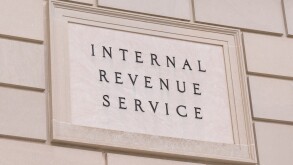
|
Arun Jaitley was also in the Global Tax 50 2014 |
Arun Jaitley returns to the Global Tax 50 as a strong influence in international taxation, which will not surprise many given that the Indian tax landscape has been nothing short of a veritable hotbed of controversy for multinational companies for a number of years. Now, slowly but surely, Jaitley is turning things around. His reforms and campaigning efforts throughout 2015 have gone a long way in altering the image of India as a tough place to do business, and healthier foreign direct investment statistics are just one indication of Jaitley's success.
2015 also saw Jaitley deliver the maiden Budget speech under the Narendra Modi-led government. The finance minister took a leaf out of British counterpart, George Osborne's book, trumpeting an 'open for business' agenda characterised by the Budget announcement that India's corporate tax rate would be reduced from 30% to 25% in a phased manner over four years.
On the dispute resolution front, Jaitley also stepped back from the long-running Vodafone tax case, having advised the company on tax issues during his legal career. A small step, and a clear conflict of interest, you might say. But, taken in conjunction with the broader policy aims Jaitley has been perpetuating, this represents another reassurance for foreign companies that India is neither a controversial nor an adversarial place in which to conduct business. In other words, another indication that actions match rhetoric for Modi and Jaitley. For businesses craving certainty and stability, this is vitally important.
Under Jaitley's guidance, the Central Board of Direct Taxes (CBDT) also instructed Indian authorities in February to follow the principles outlined in the Vodafone case for all similar disputes, after deciding not to appeal that decision.
The move, which meant that income arising out of a share transfer by the Indian subsidiaries of a multinational company to the parent should not be treated as taxable, brought some much-needed clarity to the issue and was another example of Jaitley's desire to make India a more attractive destination for foreign investors by making negotiations between companies and the tax authorities less combative.
Jaitley also prevented controversy over minimum alternate tax (MAT) graduating from molehill to mountain status, acting quickly by ordering authorities to stop issuing MAT bills to foreign portfolio investors, again reassuring the international community that India is keen to become more business-friendly.
This has not been an easy sell, but Jaitley has made great strides and seems to have borrowed some skills from French highwire-enthusiast Phillipe Petit as he expertly walks the tightrope of balancing revenue needs with investment incentives.
"For a developing country like India, it is important to ensure the balance between providing an easy-to-comply and predictable tax regime that would make it an investor-friendly place, while also protecting the revenue to which we are legitimately entitled because of the economic activity happening here," Jaitley told ITR.
Jaitley's establishment of a 10-member committee to make recommendations for simplifying income tax laws is one more positive sign that further change is afoot, and is another motivating factor for his inclusion in the 2015 Global Tax 50. He also set up a separate committee to look at how tax administration processes can be improved in the country. Both committees have delivered initial recommendations to the finance minister, and his actions on implementing some of those recommendations will, to a large extent, dictate the level of influence he has on international tax in 2016.
As Budget season commences in Asia, the eyes of the global tax community will be fixed firmly on Jaitley come March. If 2015 is anything to go by, taxpayers should be optimistic that Jaitley will again wield his influence in a way that benefits businesses.
The Global Tax 50 2015 |
|
|---|---|
The top 10 • Ranked in order of influence |
|
2. Wang Jun |
|
7. Ian Read |
|
The remaining 40 • In alphabetic order |
|









